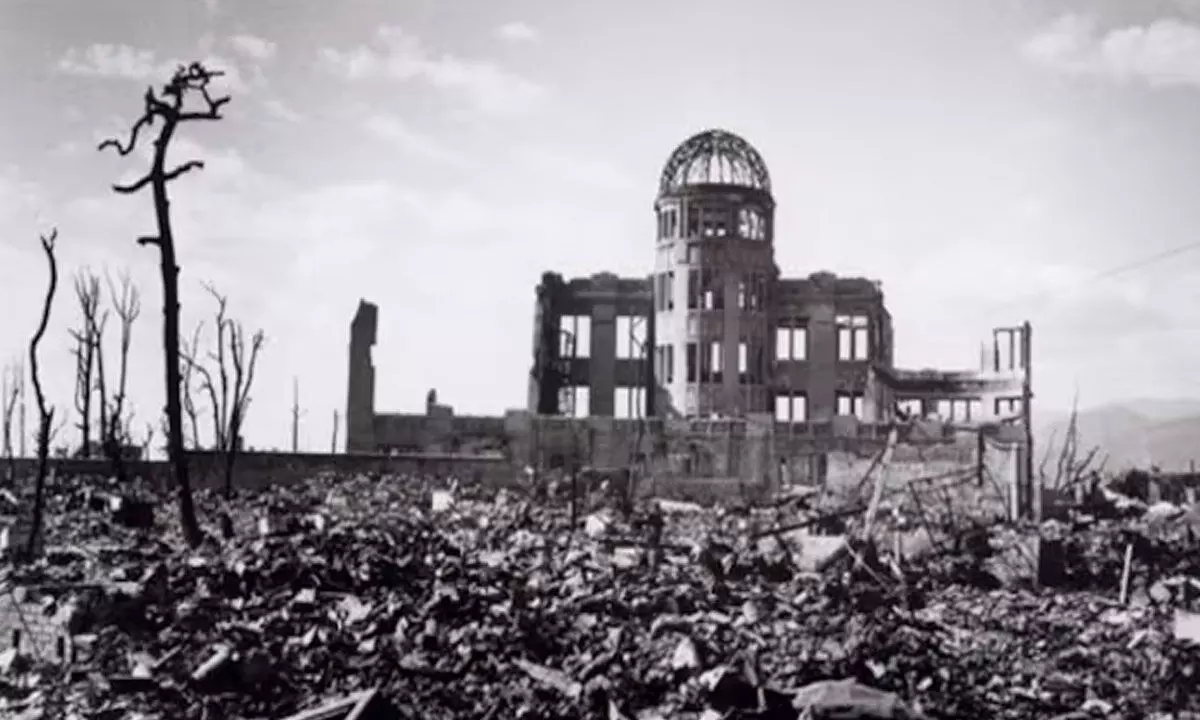Hiroshima Day 2024: Reflecting on the Impact of the First Atomic Bomb

On August 6, 1945, during the final stages of World War II, the US deployed a powerful atomic bomb, code-named ‘Little Boy,’ on the city of Hiroshima, Japan.
On August 6, 1945, during the final stages of World War II, the US deployed a powerful atomic bomb, code-named ‘Little Boy,’ on the city of Hiroshima, Japan. This devastating event resulted in the deaths of approximately 140,000 people. Just three days later, another atomic bomb, ‘Fat Man,’ was dropped on Nagasaki, marking a pivotal moment in the war against imperial Japan.
Remembering Hiroshima Day
Seventy-nine years later, the world commemorates Hiroshima Day annually on August 6. This day serves as a solemn reminder of the catastrophic consequences of nuclear warfare and calls for global unity in the pursuit of peace and disarmament. As we mark the 79th anniversary, let us delve into the history and significance of this day.
Historical Context
In the 1940s, Hiroshima was a major center of industrial and military activities in Japan, a member of the Axis powers alongside Nazi Germany and the Kingdom of Italy. The Axis coalition was engaged in a fierce conflict with the Allies, which included the United States, Britain, the Soviet Union, and China.
During the war, Japan launched several aggressive attacks on US and British forces, aiming to seize control of their colonies and resources in Southeast Asia. Notably, on December 7 and 8, 1941, Japan attacked Pearl Harbor in Hawaii and British-occupied Hong Kong, resulting in significant casualties and damage to the Allied fleets.
The Development of Atomic Bombs
In response, the United States initiated the Manhattan Project, a secret effort to develop atomic bomb technology under the leadership of nuclear physicist Robert Oppenheimer. The successful creation of the atomic bombs led to the deployment of ‘Little Boy’ on Hiroshima and ‘Fat Man’ on Nagasaki on August 6 and 9, 1945, respectively. These bombings ultimately forced Japan to surrender, bringing an end to World War II.
The Aftermath and Commemoration
While Japan eventually recovered from the devastation of the atomic bombings, the threat of nuclear warfare continues to cast a long shadow. Hiroshima Day serves as a poignant plea for peace, urging world powers to avoid repeating such catastrophic mistakes. This day is observed with solemn remembrance and reflection, particularly at the Hiroshima Peace Memorial Park in Japan, which honours the victims and underscores the devastating effects of nuclear war.
Hiroshima Day is a time for the global community to reflect on the horrors of nuclear weapons and to recommit to the cause of peace and disarmament. By remembering the tragic events of August 6, 1945, we honour the victims and reinforce our collective resolve to prevent such tragedies in the future.








